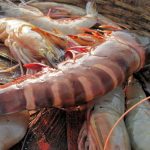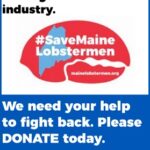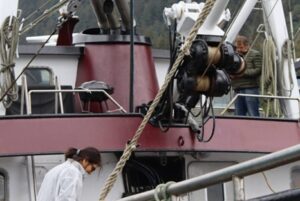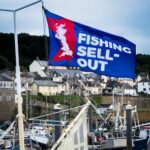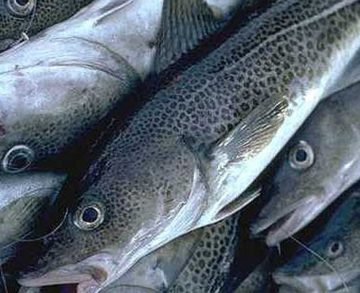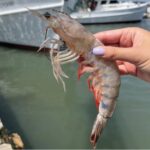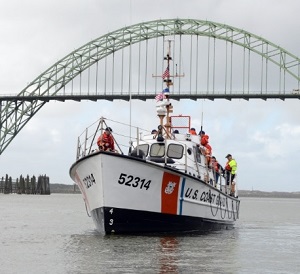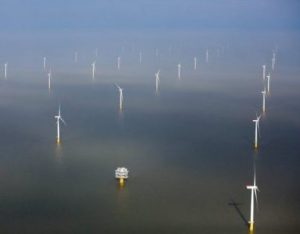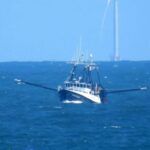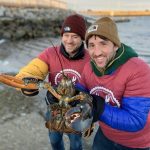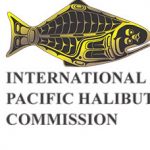“Looking Back”: The Keep Fishermen Fishing Rally
Their master’s voice! by Nils Stolpe, 04/30/12
http://fishnet-usa.com/ http://www.fishtruth.net/
Measured by any meaningful criteria the Keep Fishermen Fishing rally held on the steps of the Capitol on March 21 was a stunning success. It was attended by thousands of fishermen from as far away as Alaska, twenty one Senators and Members of the House of Representatives, and at least a half a dozen other VIPs made room in their busy schedules to come out and address the people who attended. From the most conservative of the conservatives to the most liberal of the liberals, these politically divergent speakers had one message; fix the Magnuson Act and bring back the balance between conservation and harvest.
For the second time at the national level recreational and commercial fishermen – no matter what fisheries they participated in, no matter what their disagreements on allocation or lesser issues were, and no matter where they were from – were standing together and demanding a return to the original intent of the Magnuson Act; that independent fishermen regain the significant role they once played in Magnuson management which has been pre-empted by environmental extremists, the bureaucrats who seem to be at their beck and call, and their pet “fishermen.”
But, and this will come as no surprise to anyone with a knowledge of the hundreds of millions of dollars that a handful of charitable foundations have been shoveling into the coffers of what can only be described as anti-fishing ENGOs (for an idea of their contributions, visit The Big Green Money Machine at http://www.fishtruth.net), there were isolated voices raised both pre- and post-rally distorting the purpose of the rally and the single unifying message of Keep Fishermen Fishing. There was also a paucity of coverage in the main stream media, which might be understandable considering there were no crises involved (other than the manufactured world crisis in fishing), no angry confrontations and no civil or uncivil disobedience. Just a bunch of hard working people who invested their own time and money into trekking to Washington to voice their dissatisfaction with job-killing federal fisheries policies and their elected officials who have taken their dissatisfaction seriously and intend to do something about it.
Who were these people who objected to the rally?
Seafood.com
Let’s start out with John Sackton, editor and publisher at Seafood.com. In a video posted on March 19 on his website titled Recreational Fishing Alliance not a suitable partner for fisheries reform he states “recreational fishermen are not really a reliable ally when we think about sustainable fisheries or about reforming commercial fisheries laws. Too often the message of the Recreational Fishing Alliance is simply no regulation at all for recreational fishermen.” In this clumsy attempt at marginalizing the Recreational Fishing Alliance, it’s almost impossible to conclude that Mr. Sackton isn’t also attempting to marginalize all of the rally’s organizers and all of its participants.
In the first place, his “commercial fisheries laws” don’t need reforming because in the U.S. we don’t have commercial fisheries laws. We have The Magnuson-Stevens Fisheries Conservation and Management Act (for convenience The Magnuson Act), which applies to everyone who fishes in federal waters, and the probability of getting it changed in any way favorable to domestic fishermen or the businesses that depend on them without the support of recreational fishermen is remote at best.
As far as his alleged message of the Recreational Fishing Alliance, “no regulation at all for recreational fishermen,” I’ve followed the RFA for many years, have written about the RFA in not too complimentary terms for much of that time and for the last several years have gotten to know the people there fairly well. I can state unequivocally that nothing that I’ve heard or read from the RFA and the people who run it would make me leap to such a wild-eyed conclusion.
Mr. Sackton followed this up on March 21 with a column which was as about as far removed from factual reporting as anything from a commercial fishing/seafood industry source that I’ve ever read. He started out with a discussion of Pacific halibut management. Pacific halibut, because they are managed internationally, are exempt from Magnuson rebuilding requirements, but the fact that the fishery today is currently facing some dramatic challenges sure makes it a good example for anyone who doesn’t know that.
Then he states the obvious “fishery regulations are too important to be left to politics.” While there’s absolutely nothing wrong with that statement, fishermen all too often find themselves in untenable situations because of the success of the anti-fishing ENGOs in radically distorting the original intent of The Magnuson Act. And they have done that with the political (and public relations power) that their multi-billion dollar foundation backers allow them.
Finally, he focuses on a supposed estrangement of East coast fishermen, who he would have his readers believe were in charge of the commercial fishing part of the rally, and seafood processors. According to Mr. Sackton, “because over 80% of most US commercially sold seafood products are imported, there is often a disconnect along most of the East Coast between the major seafood sellers and local production. The exception are those companies that specialize in local fresh distribution to supermarkets, like North Coast. But on the Gulf, the West Coast and Alaska, a much higher proportion of sales comes from US harvested fish. Yet this is not where we have seen the main push for these rallies and the reform of Magnuson. Non-East Coast US seafood companies like Trident, Icicle, Pacific Seafood, Bornstein and others have a huge stake in successful US harvesting. Yet their issues – access to resources, fair treatment for processing investment, the ability to do their sales and marketing free of interference, are not part of the push to reform Magnuson.”
Rod Moore, Executive Director of the West Coast Seafood Processor’s Association, took him to task for this (reproduced courtesy of Saving Seafood – see http://tinyurl.com/7cqrqog). The West Coast Seafood Processors Association was one of the sponsors of the rally and Mr. Moore served on the rally steering committee.
For the second non-surprise of the day, John Sackton has worked for the Environmental Defense Fund – though he responded to an inquiry that he hadn’t done so for two years. The Environmental Defense Fund is a strong ENGO supporter of catch shares, as is Mr. Sackton, and has received millions of foundation dollars to “revamp” U.S. fisheries policies.
Environmental Defense Fund
Then we have The Environmental Defense Fund itself. In a blog (EDF Statement in Response to Today’s “Keep Fishermen Fishing” Rally”), Associate VP John Minimakis wrote in his condemnation of the rally “the focus should not be on gutting the law.” Of course the focus of the rally wasn’t on gutting the law, but why should that constrain what Mr. Minimakis was willing to imply?
He continued “we need to use the flexibility in the law and innovative management approaches to address the challenges we face. For example, NOAA is using this flexibility to address the looming crisis with Gulf of Maine cod, using the law’s emergency provisions to allow higher levels of fishing while open scientific questions are investigated further.” What do you think the probability of NOAA using “existing flexibility” in Magnuson would be were it not for a rally at which a bunch of Senators, Congresswomen and Congressmen (with a large proportion from New England) were supporting the amendment of the Magnuson Act to make that flexibility dependent on the law rather than on the whims of whoever is in charge at NOAA?
He then wrote “we can’t go back to overfishing….” No one associated with Keep Fishermen Fishing, none of the legislators or other folks who spoke at the rally, and no responsible fisherman did or would suggest that we should, but the implication is surely there, isn’t it?
Finally, “while many speakers at today’s rally pushed various bills that would impose top-down mandates from Washington, we believe fishery management is best decided at the council level where fishermen can directly influence how the resource they depend on is managed.” Right on, Mr. Minimakis. But the codfish “solution” that you were so intent on praising above isn’t going to be coming from the New England Council and it isn’t going to come from the affected fishermen. It’s going to come from NOAA in the form of an approved Emergency Action for year one and it’s going to come from Congress – if it comes – in year two and subsequently. Not much “top-down” at all in that, is there?
The Marine Fish Conservation Network
And when it comes to ENGOs, I can’t leave out the Marine Fish Conservation Network. The MFCN goes to heroic lengths to present itself as a group of fishing and associated organizations that are banded together to save the U.S. fisheries from the uncaring and short-sighted fishermen who don’t really know what’s best for the fish and, by implication, for themselves – or at least for some of them. They are part of a grass roots organization of the greenest sort, they would have you believe.
While their roots are surely green, in truth they are the green of the Big Green Money Machine (linked above). In fact, if you follow the “Marine Fish Con Network” link on the “Connections” page, you will find that the Network has taken in almost five million foundation dollars. I suspect that doesn’t classify them as a grass roots organization in anybody’s book but their own. (For more insight into the Network, see a column I wrote for National Fisherman in 2007 at http://www.fishnetusa.com/All%20Stolpe%20Columns.htm#Here%20Again.)
In an opinion piece dated March 20 and titled somewhat cryptically Fishing against the fringe, Network Executive Director Matt Tinning starts out on the right track, writing “fishermen are conservationists. They cherish the resource that defines their lifestyle, and they are willing to do the hard work it takes to sustain it. Many of the most significant marine conservation advances are driven by commercial fishermen concerned by what they see on the water, and by recreational anglers whose love of the ocean fuels their sporting passion. Their interest in securing healthy oceans and productive fisheries isn’t abstract or merely intellectual. For fishermen, it’s personal.” Mr. Tinning couldn’t be any more on target than that.
However, he proceeds to crash and burn in the subsequent several hundred word rant. He begins by faulting the Recreational Fishing Alliance with the words “in contrast with myriad other recreational fishing groups that have been built from the ground up through the shared commitment of individual anglers and small businesses, RFA was established by a big dollar investment from Viking Yachts.” Let me remind you here that these are the words of the Executive Director of an organization that has gotten well upwards of four million dollars from a small handful of huge foundations.
And he goes on, and on, and on… in a similar vein. But he gets it right again in writing “RFA will be joined at this week’s rally by a number of well-meaning and hard-working commercial fishermen and recreational anglers. Some will come to voice legitimate grievances, others to convey directly to lawmakers the economic challenges they face. Rebuilding and sustainably managing federal fisheries–while weighing individuals’ immediate economic needs, providing for access, and securing the long-term prosperity of coastal communities–involves inherently contentious policy choices.” Again, not too bad, but then “certain Members and Senators who take their representation of fishermen seriously will be tempted to grace the RFA with their presence and weigh in on these complex issues with an easy applause line.” He was right about certain Members and Senators. They weren’t only tempted to do so, they actually did grace the RFA and a whole lot of other fishermen – far more than the 300 that Mr. Tinning estimated to be there post-rally – with their presence, with their words and with their commitments to fix the mess that the Network and its foundation-funded partner ENGOs have made of federal fisheries management and of independent fishermen’s ability to effectively participate in it.
But Mr. Tinning didn’t stop there. One of the ground rules of the Keep Fishermen Fishing rally was that it was open to any fishermen, anyone in fishing dependent businesses, and in fact anyone who wanted to show their support for fishermen and fishing in general.
In a press release for the Marine Fish Conservation Network dated March 26 Mr. Tinning wrote “on Friday, a photo came to light confirming that Omega Protein was a central participant in the March 21 rally.” Omega Protein is a large corporation that catches and processes menhaden, a small forage fish common on the East coast and in the Gulf of Mexico, into fish meal and fish oil (for those of you who are interested in cardio-vascular and neurological health, oil from menhaden is one of the few sources of the most desirable form of omega 3s). He continued ranting “for our nation’s anglers to have to learn that a group who falsely claims to represent them (the Recreational Fishing Alliance) is teaming up with ‘public enemy number one’ is a disgrace.” Now I might have missed the point of his earlier screed, but he did devote considerable words to what he perceived as the RFA’s propensity to produce “bile.” Considering that the Omega Protein fishermen who attended the rally have been employed in a legal fishery and have been fishing in compliance with very rigorous regulations for at least two generations, I can’t help thinking that Mr. Tinning is far ahead of the RFA in raw biliousness.
I couldn’t do any better than to reproduce the RFA’s Managing Director Jim Hutchinson’s words responding to the Network’s other charges:
In response to recent criticisms leveled against the Recreational Fishing Alliance (RFA) by the Marine Fish Conservation Network’s executive director Matt Tinning on behalf of his members, RFA will offer no such apologies for its participation in the Keep Fishermen Fishing rally in Washington DC on March 21, 2012. Mr. Tinning’s outlandish claim that the Recreational Fishing Alliance “teamed up” with Omega Protein to convene the Keep Fishermen Fishing simply because representatives of Omega Protein attended the rally is completely absurd. Given that the People for the Ethical Treatment of Animals (PETA) and Marine Fish Conservation Network’s own executive director, and their own individual members, also attended the rally, by Mr. Tinning’s logic it must therefore be determined that both PETA and the Marine Fish Conservation Network also officially “teamed up” with RFA and the Keep Fishermen Fishing rally. The Keep Fishermen Fishing rally was a public event held on U.S. Capitol grounds, meaning that neither RFA nor official rally organizers were able to physically remove from the grounds any of those who would peaceably assemble to provide a counter-point to our reform Magnuson message. RFA supports efforts to reform the federal fisheries law, we do not however support any efforts to trample upon any American’s First Amendment rights, specifically “the freedom of speech, or of the press; or the right of the people peaceably to assemble.” RFA will never apologize for defending our members’ right to fish on healthy fish stocks, nor will we ever apologize for upholding the values of the First Amendment. Asking us to do either is un- American and a clear violation of our mission.
(Note – for a picture of Mr. Tinning’s “public enemies” at the rally that illustrates both the “central role” they played and the open derision that other participating fishermen greeted them with, see the pictures accompanying Julia Edwards’ article on the National Journal website at http://www.nationaljournal.com/pictures-video/fishermen-rally-on-capitol-hill-20120321.)
Natural Resources Defense Council
In his blog, David Newman, NRDC’s Oceans Program Attorney in New York, wrote that the Magnuson-Stevens Fisheries Conservation and Management Act “…the law that’s helped to bring America’s marine fish populations back from the brink of collapse…. is under attack right now by fishing lobbying groups that have organized a rally in Washington, D.C. today. Preserving the Magnuson-Stevens Act (MSA) is the most effective way to keep fishermen fishing by ensuring that enough fish remain in the sea to spawn the next generation. Our work toward sustainable fisheries is not finished and challenges remain. But Magnuson-Stevens is proven to save fish species in danger, while keeping fishermen fishing at the same time, so our children can do the same. We need to keep what’s working in place and roll up our sleeves to improve what we have, rather than tearing it all down.”
In spite of Mr. Newman’s assertion, the goal of the Keep Fishermen Fishing rally wasn’t to do away with the Magnuson Act, and in fact wasn’t to do away with any major parts of it – which I assume he meant in writing “tearing it all down.” It wasn’t aimed at tearing down anything – other than, perhaps, a federal fisheries management bureaucracy that has become far too cozy with ENGOs like EDF, far too concerned with the welfare of fish and far too estranged from independent fishermen and what it takes to keep them working and to keep their businesses solvent.
Needless to say, the NRDC is well into the million dollars plus club of Pew and other megafoundation recipients.
Pacific Coast Federation of Fishermen’s Associations
The PCFFA stated in a press release on March 21“the root of the problem confronting the nation’s fishing industry is not the nation’s primary fishery statute – the Magnuson-Stevens Fishery Conservation & Management Act (MSA), which requires ‘science-based’ fishery management. The problem, rather, is flawed policies that fail to adequately fund critical fishery science, along with schemes to privatize public fish resources, and promote dangerous forms of fish farming.” PCFFA President David Bitts was quoted in the release that the problem “is not with a law that requires management to be science-based, but with policies that underfund or fail to fund the necessary science, along with policies that take money from scientific needs and apply it to political desires.”
Perhaps the PCFFA represents mostly small boat salmon fishermen, and if it does, then it’s possible that from their perspective the only problems with fisheries management are at the policy rather than the legislative level. However, and though inadequately funded – and interpreted – science is a problem, I’d venture to say that their narrow view is not shared by most fishermen.
The original intent of the Magnuson Act, to allow independent fishermen significant input into the federal fisheries management process, has been distorted by megafoundation-funded lobbying in recent years. The assumption today is that the science underlying management decisions is adequate and forces complete reliance on that science, allowing for no deviations regardless of the human impacts of an ever-increasing degree of easily demonstrated inadequacy (as discussed in the final section here on NOAA/NMFS, assessment science in the New England groundfish fishery – historically one of our most important fisheries and inarguably the recipient of more NOAA/NMFS attention than any other in recent years – has the Gulf of Maine cod stock going from good shape to wretched in three years, and the only thing that changed was how the assessment was done). Whether the science underlying a fishery management plan is good, bad or totally irrelevant, as long as it is judged “the best available,” it will be the sole determinant of what regulations are put in place and of what damage is inflicted on the fishermen and fishing dependent businesses in the name of “conservation.”
This is something that can only be changed by amending the Act.
The PCFFA, and the associated Institute for Fisheries Resources, has received well over a million dollars from the Packard Foundation.
The main stream media
There was an almost total lack of interest in the Keep Fishermen Fishing rally by the mainstream media. To set the stage, here we had a whole bunch of fishermen and a whole bunch of elected officials together, all on the same page, all concerned primarily about jobs and the economy (and their place in it), all being civil and with common sense suggestions for change. The speakers ranged from the most conservative of the conservatives to the most liberal of the liberals, and they were sharing the same platform and supporting the same legislative reforms.
What are the chances of that in Washington, DC in 2012? Yet it happened on the Capitol steps on March 21, but where were the reporters? Where were the camera crews?
Let’s take the Washington Post as an example. It would take a Post reporter and photographer perhaps 15 minutes to make the trek to the Capitol. They wouldn’t have to pack a lunch or a toothbrush, make reservations or anything much more complicated than going out the front door and walking towards the big golden dome well under 3 miles to the southeast.
Did anyone bother? If they did, nothing they wrote and no pictures they took turned up anywhere that I could find.
But like many stories, this one is kind of meaningless without context, and the unfortunate context of this one is that the people at the Post appear to be interested in fisheries issues only if they are a reflection of what the foundation folks think are important, in fisheries perspectives only if they are held by the foundation folks and only in fisheries experts only if they have financial connections to these few foundations. There sure weren’t any foundation folks participating at the Keep Fishermen Fishing rally.
Since the rally the Post has carried three fisheries articles. In Shark kills diver off southwest Australia on March 31 reporter Juliet Eilperin quoted 3 shark “experts:” Sonja Fordham, President of Shark Advocates International (a “project” of The Ocean Foundation which has received over a million dollars in funding from Pew and Packard); Matt Rand, who directs the Pew Environment Group’s global shark conservation program; and Rebecca Regnery, deputy director of wildlife for Humane Society International which partners with the Pew Environment Group on various issues. The article had little to do with the circumstances of the tragic death of the diver, Peter Kurmann, but focused on a recent international agreement to protect oceanic white tip sharks in the Western and Central Pacific. (Confusingly, Ms. Eilperin quoted Pew’s Rand as saying “of course it’s tragic every time there’s an accident with a shark. It is very rare” just three hundred words after her lead sentence “a diver was killed by a 13-foot shark Saturday off a beach in southwestern Australia, in the region’s fourth shark-related fatality since September.”)
In Little fish are most valuable when left in the sea, researchers say (April 1), Ms. Eilperin reports on an analysis by The Lenfest Forage Fish Task Force. Pew administers the Lenfest Ocean Program. In it she quotes Edward Houde, Ellen Pikitch and Dee Boersma. Pikitch and Boersma are both Pew Marine Conservation Fellows. Pikitch is the Executive Director of the Pew/Lenfest funded Institute for Ocean Conservation Science at Stonybrook University.
And in Some question whether sustainable seafood delivers on its promise Ms. Eilperin quotes Carl Safina (founder of Blue Ocean Institute and Pew Scholar), Daniel Pauly (one of the authors of the Lenfest/Pew sponsored report on “little fish” referenced above and recipient of multiple millions of Pew dollars through his fiefdom at the University of British Columbia), Rainer Froese, another Pew Scholar, and Michael Sutton, Vice President of the lavishly Packard funded Monterey Bay Aquarium who had previously worked for World Wildlife Fund, recipient of other multiple millions of dollars from the Pew, Packard and Walton foundations. She also included several quotes by a Florida fisherman who operates a small seafood business.
In these three articles, all of which dealt with controversial (in the fisheries science world) topics, Ms. Eilperin consulted with and quoted nine experts who had direct and significant ties to the Pew Trusts, and one who didn’t.
Ms. Eilperin’s focus on (mainly) Pew- and other megafoundation funded researchers is quite a bit more profound than even her coverage of sharks, forage fish and “sustainable” seafood indicate. As I wrote in In the belly of the big green beast while detailing my singular experience on a Society of Environmental Journalists panel that she chaired (http://tinyurl.com/7ovs35o), “and then there is Ms. Eilperin herself, who while not in the Gaines/Pauly/Lubchenco/Baron tier of ‘connectedness’ to the Pew/Packard/Moore/Walton multi-million dollar gravy train, has managed a few dribs and drabs herself. She writes in the acknowledgements section of her recently published book on sharks ‘more than any other single group, the Pew Marine Fellows have helped educate me about the ocean…. I would like to single out (among others) Jane Lubchenco, Daniel Pauly… Nancy Baron deserves the credit for introducing me to these scientists.’ Ms. Eilperin also acknowledges the American Littoral Society as one of the two sources of “travel grants” for the book. The American Littoral Society has received almost $6 million from the Pew Charitable Trusts. Ms. Eilperin has also been a participant in COMPASS media/scientist confabs.”
Is this reporting or is it cheerleading?
It strains the bounds of credulity to think that Ms. Eilperin and the Washington Post are the sole beneficiaries of the Pew Trusts and other megafoundation efforts to convince environmental journalists to adopt their equivalent of tunnel vision when it comes to fisheries and oceans issues, and the lack of coverage in the other major newspapers (NY Times, LA Times, Miami Herald, Boston Globe, and on and on…) would seem to bear this out.
(I’ll note here that last Saturday at 8:30 pm Ms. Eilperin contacted me for information on who she could talk to in New England ref her article on seafood sustainability. When I saw her message just before 4:00 on Sunday afternoon I provided her the email addresses of two well respected individuals. They both responded to her. She didn’t use any of the information they provided in her article.)
And finally, we have NOAA/NMFS
As has been widely discussed in the media, a recent stock assessment has called into question the recovery of Gulf of Maine codfish from prior overfishing. In a few short years, the NOAA/NMFS scientists would have us believe, their ability to assess the strength of this particular stock has improved to such an extent that what was previously recognized as a healthy population growth trajectory is now recognized to be a precipitous decline into, once again, a severely overfished condition.
Naturally, this precipitous decline in the health of the stock would demand immediate (starting with the next fishing year) measures to meet the arbitrary rebuilding schedule for Gulf of Maine cod. These measures would in all probability include either drastic cutbacks in or complete closures of the cod fishery and of all of the other groundfish fisheries in the Gulf of Maine that take cod as bycatch. While difficult to imagine, these cutbacks would inflict even more pain on the New England groundfish fishery than our federal fisheries managers have been able to inflict on them up until now.
And lest there are any misapprehensions floating around out there, for the last several years the groundfish fishermen have been admirably toeing the line. They have been fishing exactly as they have been told to fish by the federal fisheries managers and the perceived lack of fish is the result of nothing more than the managers figuring out another way – they insist a more accurate way – to estimate the condition of the cod stock.
But NOAA/NMFS announced, days before the Keep Fishermen Fishing rally, that it wouldn’t have to impose those drastic restrictions on the groundfish fleet (and the onshore businesses and the fishing communities and etc.) that the Magnuson Act seemed to require because, mirabile dictu, the Act already allowed the flexibility that we were in Washington rallying for. Is that a coincidence or what? We don’t need to fix Magnuson, because it can already allow what we are asking for.
Or perhaps, stated a bit more accurately, the Magnuson Act can allow whatever NOAA/NMFS decides it can allow if doing so will keep the Act intact.
Of course, that new found “flexibility” still demands a 22% reduction in codfish mortality in the next fishing year, and even with that 22% reduction, the Magnuson mandates are going to demand even more drastic reductions for the following fishing year.
It appears as if the only thing that’s going to keep the groundfish fishery alive the year after next – unless NOAA/NMFS can figure out yet another way to count codfish in the interim – will be an act of Congress.
So does Magnuson actually permit enough flexibility so that when NOAA/NMFS commits another massive assessment blunder, a blunder which in no way can be blamed on the fishermen, the fallout of that blunder can be made manageable for the fishermen? If that’s what NOAA/NMFS decides to do, apparently it does. But only for a year. That’s all the leeway that NOAA/NMFS can allow under Magnuson. And NOAA/NMFS is in no way bound to do it for that first year and Congress is not bound to do it subsequently. That isn’t quite good enough for the fishermen, that isn’t quite good enough for all of the people who depend on those fishermen, and that shouldn’t be good enough for all of those seafood consumers who are being told that the catch of the day is now imported basa, imported tilapia or imported shrimp.
(Note that NOAA/NMFS seems to be in the midst of another New England groundfish fisheries “crisis.” In this one the stock of Georges Bank yellowtail flounder seems to have mysteriously plummeted precipitously. This is going to place yet another burden on the people, businesses and communities that depend on the New England fisheries.)
All that the Keep Fishermen Fishing participants and organizers were and are asking for
In spite of all of the apparently megafoundation spawned – or at least subsidized – hyperbole to the contrary, Keep Fishermen Fishing was (and is – go to http://www.keepfishermenfishing.com to remain up to date) not on a one way mission to make overfishing a way of life. Keep Fishermen Fishing was, is and will be committed to sustainable fisheries now and into the future And all of the Members of Congress who addressed the Keep Fishermen Fishing rally were and are committed to sustainable fisheries as well.
As I see it, underlying the Keep Fishermen Fishing campaign is one very simple question. As long as a fish stock is increasing, is it worth forcing fishermen out of it so that it reaches an arbitrary level of abundance next year rather than reaching that level two or three years later would allow the businesses that depend on that fishery to remain viable?
Recent events in New England point to another question that everyone who fishes – and anyone with an interest in our U.S. fisheries – should be asking (particularly in view of the growing New England groundfish crisis). Shouldn’t we be seriously reassessing the adequacy of the philosophic and scientific underpinnings of our entire fisheries management system? Obviously it isn’t just fishing mortality that’s impacting our fisheries, yet we’re still managing as if it were. Just as obviously, the science that our fisheries management system depends on, supposedly world class science, has proven woefully inadequate time after time. How many billions of dollars is this costing us? How much human suffering?
And finally, for how much longer are we going to be shouldered with a federal fisheries management bureaucracy that acts as if its marching orders originate not on the docks or in the Halls of Congress but rather in the board rooms of a handful of multi-billion dollar “charitable” foundations?



































